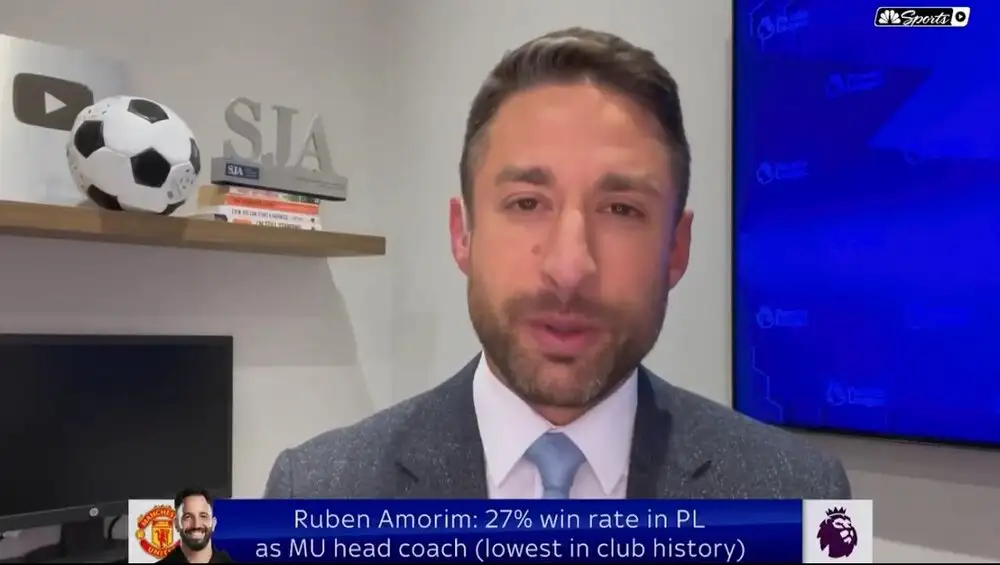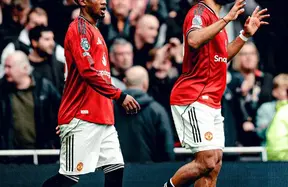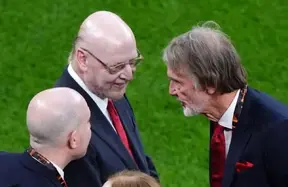A widely cited update suggests most Manchester United players buy into Rúben Amorim’s methods, yet the team repeatedly deviates from his setup right after conceding, pointing to a psychological block rather than a tactical flaw. Fan discourse zeroes in on leadership, second-ball duels, intensity, and alleged leaks about positional roles. Some argue the captain’s on‑field reactions trigger panic, others blame goalkeeping errors for compounding nerves. The split between belief and execution has become the core storyline: the plan seems clear, but in high‑stress moments United default to bad habits, undermining structure and momentum.

Following recent matches in which Manchester United lost control immediately after conceding, a reputable report quoting David Ornstein indicated the dressing room largely supports Rúben Amorim, but players acknowledge they are not following the instructions in those key moments. The conversation has been fuelled by talk of positional discontent, scrutiny of intensity and second‑ball commitment, and renewed debate about leadership when the team goes behind. This backdrop has sharpened attention on how United manage momentum swings, whether the message from the touchline is being executed consistently, and how internal communications are handled during adversity.
🚨🗣️ @David_Ornstein on Amorim: "The Manchester United players are mainly with him - they believe in what he’s doing, but there’s an acceptance that when they concede a goal, for example, they’re not doing what they’ve been set up to do by him and maybe it’s a psychological and
@UtdXclusive
Impact Analysis
The core issue is not the clarity of Amorim’s approach but the team’s resilience when game state flips against them. United’s structures—pressing triggers, rest-defense, and compactness between lines—depend on collective discipline. When they concede, multiple fans and observers point to an immediate drop in composure: passes become rushed, distances between units stretch, duels are lost, and a tidy plan unravels into transition exposure. That divergence between design and delivery is where points are slipping away.
Psychology and leadership are central. If influential figures on the pitch lose emotional control after setbacks, others mirror that behavior. A captain’s body language, the goalkeeper’s decision-making, and the midfield’s ability to re-establish tempo are critical stabilizers. Without those, the side becomes reactive, chasing moments rather than reasserting structure. The perception of leaks about roles and positions further complicates buy-in, as it erodes trust between staff and squad and feeds a narrative that undercuts accountability.
Operationally, the fix lies in repeatable protocols: a post-concession reset sequence, pre-agreed field positions to halt chaos, and non-negotiables for second balls. Bench decisions must reward tactical obedience; players who drift from instructions in key phases should feel immediate consequences. If Amorim pairs that with clearer leadership hierarchy and a crackdown on noise outside the dressing room, the gap between belief and execution can narrow quickly.
Reaction
Fan sentiment is raw and polarized. A loud contingent questions how players can “believe” in the manager while reportedly leaking frustrations about roles, demanding accountability for second-ball losses and a perceived drop in intensity after conceding. Leadership is the lightning rod: many accuse the captain of emotionally spiraling once a goal goes in, arguing that his frantic decisions spread panic through the team. Others pivot to the goalkeeper, claiming early mistakes or shaky distribution exacerbate stress and undo the defensive shape.
There’s also a hardline camp calling for immediate benchings of anyone who deviates from tactics—invoking repeated patterns under prior managers to frame this as a player-culture issue rather than a coaching flaw. Nostalgic references to work rate—“run like Rooney after losing the ball”—reflect a desire for visible urgency. Some messages veer into despair, claiming the club’s identity has eroded, while pragmatists argue the solution is simple: win duels, hold possession, and stick to the plan in adverse moments. Amid the noise, a common throughline emerges: belief means nothing without obedience to structure when the pressure peaks.
Social reactions
Why would players admit to journalists they have a psychological and mental issue? Don’t buy this at all
UtdCritique (@UtdCritique)
See you in championship next season 🤣👍
Emmanuel (@_nuel__)
Tomorrow will be the start of greater things to come. 💪🏾 #AmorimIn
Amorim In!🌵 (@theydunnoskrrrt)
Prediction
Short term, expect Amorim to impose harsher non-negotiables. Players who ignore rest-defense positions or abandon pressing principles after setbacks face reduced minutes, regardless of status. Training blocks will likely simulate post-concession phases: rehearsed kick-off patterns, controlled possessions to compress distances, and scripted triggers to halt opponent momentum. A visible leadership recalibration—either a tighter on-field leadership group or defined spokesperson in crisis moments—could arrive to stabilize emotions.
Medium term, internal communications will harden. The staff may narrow tactical messaging, reducing role ambiguity and noise that can morph into leak fodder. A stricter media protocol and internal reviews after each game-state swing will aim to align narrative and performance. Subtle system tweaks may appear: a deeper pivot to shield transition lanes, or a more conservative full-back height immediately after conceding to rebuild shape.
Worst case, if panic persists after goals, the public narrative flips rapidly from “players believe” to “players won’t execute,” inviting calls for symbolic changes in the XI. Best case, a clean run of matches with structured responses to adversity reframes United as organized and ruthless in recovery. Given the reported buy-in, the latter scenario is plausible—provided discipline trumps impulse.
Latest today
- Manchester United eye Manu Koné for summer 2026 - a made-to-measure fit for Amorim's midfi...
- Ruben Amorim aligns with Jason Wilcox as Man United sharpen January transfer plan
- Ruben Amorim on 3-4-3: identity first - what it means for Manchester United and player rol...
- Amorim flags United injury crisis - Bruno, Mainoo, De Ligt, Maguire and Mount doubtful
Conclusion
Belief is the headline; execution is the currency. Amorim’s plan is not the problem if the team abandons it in the precise moments it’s most needed. United’s path forward is brutally practical: codify what happens in the 90 seconds after conceding, shrink spaces, complete the next three passes, and win the first two duels. That sequence, repeated, restores control and reasserts shape.
Accountability must be evident from the touchline to the armband. Leaders set emotional tone; if calm and clarity hold after adversity, the squad follows. Strip away narratives about roles and focus on behaviors: sprint recovery runs, ball security, compact distances, and clear communication. If someone can’t comply, rotate them out. Belief without compliance is superstition; belief with habits is a pathway to points.
The dressing-room story will either be remembered as a turning point toward maturity or as more of the same. The difference won’t be a new slogan or a new tweet—it will be United’s next five minutes after the next goal they concede. Make those minutes boring, controlled, and repeatable, and the broader trajectory will take care of itself.













T&Tdrex22
ffs lol
UtdCritique
Why would players admit to journalists they have a psychological and mental issue? Don’t buy this at all
Emmanuel
See you in championship next season 🤣👍
Amorim In!🌵
Tomorrow will be the start of greater things to come. 💪🏾 #AmorimIn
Bars_MU
Spot on. It's baffling how we concede one goal and the whole structure just collapses.
Pog United
Mainly?
Why Are you….
It’s called brain farts
Nasty
Amorim holds 30% blame but the rest is on the players deadarse
UTD WE HERE 🇬🇧🇳🇬@manutd
I think the players we played on their own tactics and formation they won’t listen to coach system
Wazza
Thank god they believe in him. Too many times we have seen them give up. I still believe there will be a turn around this season!! Too early for all these nonsense about manager change!
Dan🇵🇸
Maybe? It 100% is a mental issue
WannaBeAdoRED
CuriousRavi
This psychological and mental issue starts with Bruno.
yusuf bawe
And who is responsible for this, so does Amorim need coach to come and help him fix players mentality.
Odeneho Ernest
It's less than 24 hours before the game and Sunderland have been informed what they need to do to win against us 🥲🥲🥲
#AmorimOut
#AmorimOut
Maya Banks
Them Don dey cráse be that 🤣 😂
Sadiq
You can change the formation every day, but what really matters are the team’s psychology and mentality. If he can’t fix those, then what’s the point of him being there? They’re looking at the wrong things.
Irate Debate
You could say that, Mount at wing back.
#1 Zirkzee superfan
Not seeing this acknowledged enough, but he’s the coach, so it’s his job to drill what he wants and motivate the team
Bólúwátifẹ́ 😎
Our manager is also a hypnotist?
Nicole Simeone
So the players back Amorim’s methods, but mistakes are showing it’s as much a mental issue as a tactical one. #MUFC
Blessed_Child
Players that plays shit under pressure, wtf is this? Players that are out of their positions also believe?
UTP
This is exactly where Bruno comes in. Anytime we concede a goal, dude loses his mind and starts treating the ball like a bomb.
Sheriff Sodiq
Players have to prove their self tomorrow Not them Leaking and complaining about any formation They should win duels ,win possession and play good game that’s what they should be doing
曼联球迷
If the players so believe in him like Ornstein is saying, why are they leaking to the press that they dont like the positions they are asked to play? why don't they fight for the second ball and play with intensity?
Deviledred
Drop the players who aren’t following tactics. This is what they have done under multiple managers.
Yahoozee Mohammed
The captain of the team is the first player to loose his head when the team is down by goal and he needs to leave the club cos his attitude stinks against the team
Stretford 89
No it's the players he is picking for the positions in his stupid system
PSR
Delete this club, I don’t even recognise it
oldtraffordfc
If the players believe in amorim and things aren't working out then they should all run like how Rooney used to run when he used to lose the ball
Rare ladea
Spinless players that crumble under any bit of pressure The gk hasn’t helped too
Timcast News
Culture War Podcast LIVE is Back! We’re excited to announce two new DC live shows coming this October: Sat, October 18 | 3–5 PM ET Sat, October 25 | 3–5 PM ET The first show kicks off on Sat, October 18 with an incredible lineup: &